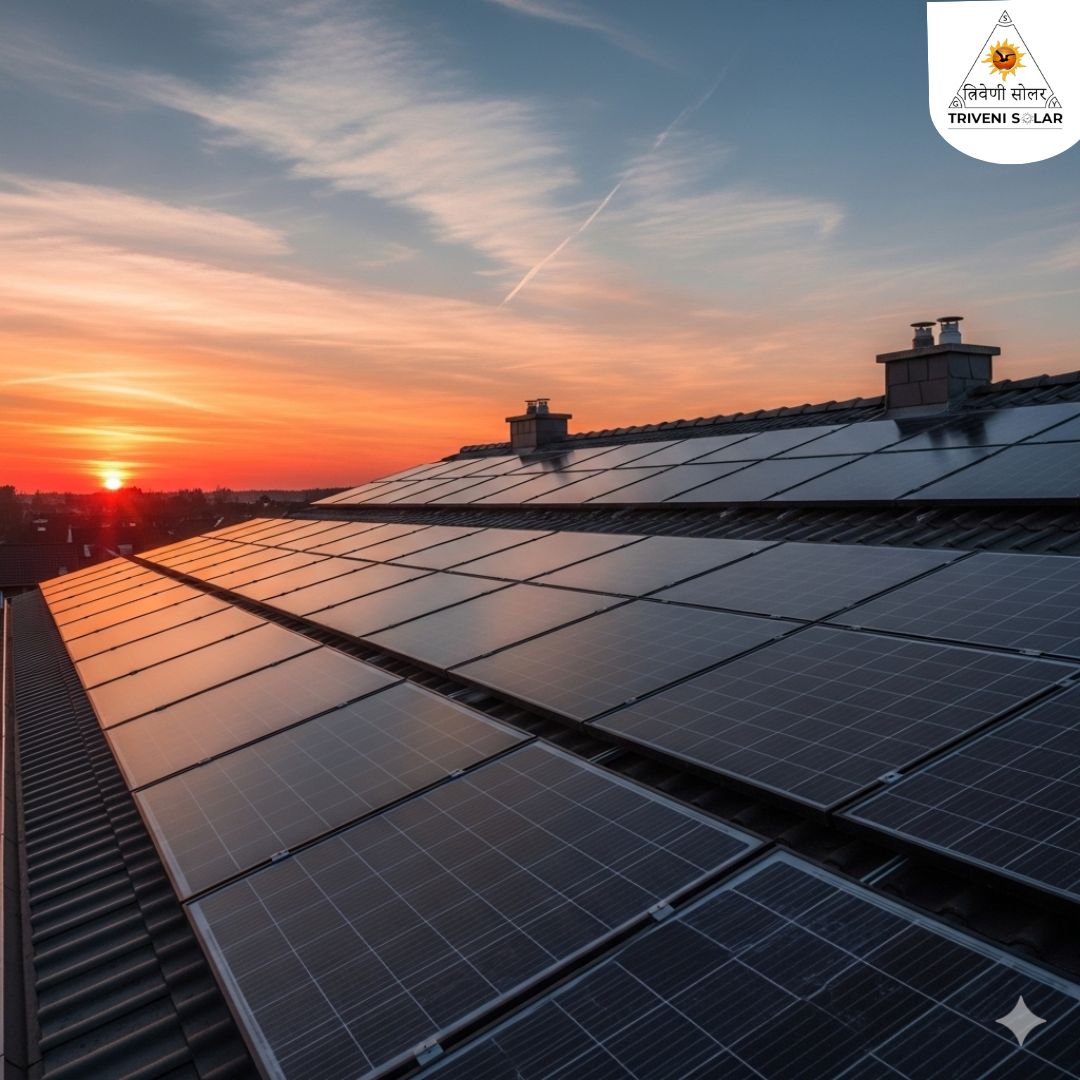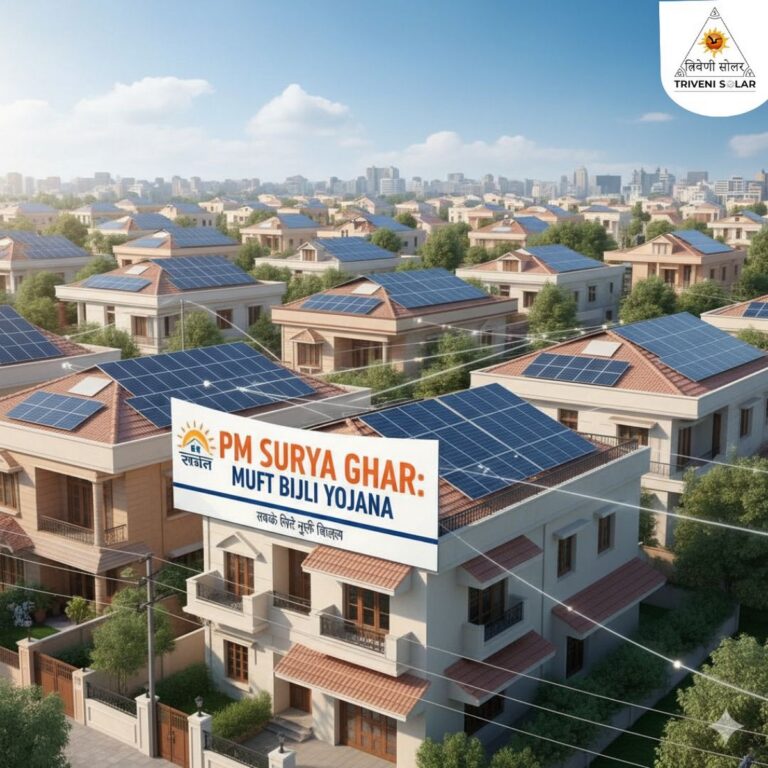The PM Surya Ghar Yojana is making rooftop solar more accessible and affordable for Indian households by providing government subsidies, financial support, and simplified application processes. It allows homeowners to save on electricity bills while contributing to renewable energy growth.
Rooftop solar is no longer a luxury. With the PM Surya Ghar Yojana, installing solar panels on your home is easier, cost-effective, and highly rewarding. This comprehensive guide will walk you through every aspect of the scheme, from eligibility to subsidies, application procedures, and real-life success stories.
Table of Contents
- What is the PM Surya Ghar Yojana?
- How the Scheme Makes Rooftop Solar More Accessible
- Eligibility Criteria: Who Can Apply?
- Step-by-Step Application Guide
- Subsidy Details & Financial Benefits
- State-Wise Implementation & Variations
- Cost-Benefit Analysis & ROI Example Table
- Comparing PM Surya Ghar with Other Solar Schemes
- Success Stories: Real-Life Case Studies
- Common FAQs About the Scheme
- Conclusion & How to Get Started
What is the PM Surya Ghar Yojana?
The PM Surya Ghar Yojana is a government initiative aimed at promoting rooftop solar installations in residential and commercial buildings across India. Launched under the Ministry of New and Renewable Energy (MNRE), the scheme provides subsidies and financial support to reduce the upfront cost of solar panels.
History & Objectives of the Scheme
Introduced in 2023, the PM Surya Ghar Yojana’s main goal is to accelerate renewable energy adoption, reduce carbon emissions, and empower Indian households to generate clean energy. It aligns with India’s target of 500 GW of renewable energy by 2030.
Government Departments & Authorities Involved
The scheme is administered by MNRE in collaboration with state electricity boards and accredited solar developers. These authorities ensure proper implementation, subsidy disbursement, and technical support.
How the Scheme Makes Rooftop Solar More Accessible
PM Surya Ghar Yojana Subsidy Benefits Explained
The government provides up to a 40% subsidy for residential rooftops and 20–30% for commercial buildings. This drastically reduces the initial investment required for solar panel installation.
PM Surya Ghar Yojana Financing Options & Easy Installations
Several banks and financial institutions provide low-interest loans for rooftop solar systems. Coupled with subsidy support, this makes solar installations financially viable for most households.
PM Surya Ghar Yojana Eligibility Criteria: Who Can Apply?
PM Surya Ghar Yojana Individual Households
- Residential buildings in urban and rural areas.
- Grid-connected or off-grid solar systems.
- Applicants must own the rooftop or have landlord permission.
PM Surya Ghar Yojana Multi-Family & Commercial Buildings
- Apartment complexes with shared rooftops.
- Small and medium commercial establishments.
- Government-owned buildings may apply for separate subsidies.
PM Surya Ghar Yojana Step-by-Step Application Guide
Documents Required
- Proof of ownership (Aadhar/Property papers).
- Electricity bill for existing connection.
- Identity proof (Aadhar, PAN, or Voter ID).
- Bank account details for subsidy transfer.
Online Application Process
Visit PM Surya Ghar official website, register with your details, submit the required documents, and select a certified solar installer. Once approved, installation will be scheduled by the accredited vendor.
PM Surya Ghar Yojana Subsidy Details & Financial Benefits
Residential & Commercial Subsidy Breakdown Table
| Category | Subsidy % | Maximum Capacity Covered |
|---|---|---|
| Residential (Individual) | 30–40% | 1–3 kW |
| Commercial & Industrial | 20–30% | Up to 500 kW |
| Government Buildings | 30–50% | Variable |
Calculating Savings & ROI
Installing a 3 kW rooftop solar system can save ₹15,000–₹20,000 per year on electricity bills. Payback period is typically 4–6 years, after which energy generated is almost free.
State-Wise Implementation & Variations
Subsidy % by State (Table)
| State | Subsidy % | Additional Benefits |
|---|---|---|
| Maharashtra | 40% | Net-metering incentives |
| Rajasthan | 35% | Low-interest loans |
| Tamil Nadu | 30% | Priority grid connection |
| Karnataka | 40% | State tax exemptions |
Key State Contact Details & Portals
Applicants should check their respective state renewable energy boards for local guidelines, online registration, and installer lists.
Cost-Benefit Analysis & ROI Example Table
| System Size (kW) | Installation Cost (₹) | Subsidy (₹) | Net Cost (₹) | Annual Savings (₹) | Payback Period (Years) |
|---|---|---|---|---|---|
| 1 | 70,000 | 28,000 | 42,000 | 7,000 | 6 |
| 3 | 2,10,000 | 84,000 | 1,26,000 | 18,000 | 7 |
| 5 | 3,50,000 | 1,40,000 | 2,10,000 | 30,000 | 7 |
Comparing PM Surya Ghar with Other Solar Schemes
| Scheme | Subsidy % | Eligibility | Special Features |
|---|---|---|---|
| PM Surya Ghar Yojana | 30–40% | Residential & Commercial | Easy online application, state-wise incentives |
| Rooftop Solar Scheme (MNRE) | 20–30% | Residential & Commercial | Limited subsidy for smaller systems |
| State Solar Subsidy Schemes | Varies 20–50% | State-specific | Additional tax benefits, net-metering |
Success Stories: Real-Life Case Studies
Case Study 1: A Mumbai household installed a 3 kW rooftop solar system under PM Surya Ghar and now saves ₹18,000 annually on electricity bills, with a payback period of 7 years.
Case Study 2: A small commercial office in Bangalore installed a 5 kW system, leveraged a 40% subsidy, and reduced energy costs by 60% while earning revenue from net metering.
Common FAQs About the Scheme
Who is eligible for the PM Surya Ghar Yojana?
All Indian households, apartment complexes, and commercial buildings with proper rooftop ownership or permissions can apply. Government buildings are also eligible.
How much subsidy is provided?
Residential installations get 30–40% subsidy, while commercial buildings receive 20–30%. State-wise incentives may vary, so check your local renewable energy board.
What is the payback period?
Depending on system size and electricity consumption, the payback period ranges from 4 to 7 years, after which energy generated is almost free.
Conclusion & How to Get Started
The PM Surya Ghar Yojana is revolutionizing rooftop solar adoption in India by making it affordable, accessible, and profitable. Whether you are a homeowner or a commercial entity, now is the perfect time to invest in clean energy and reduce electricity bills.
Visit the PM Surya Ghar official website today, check your eligibility, and start your rooftop solar journey. Don’t miss the chance to save money and contribute to a greener India!



